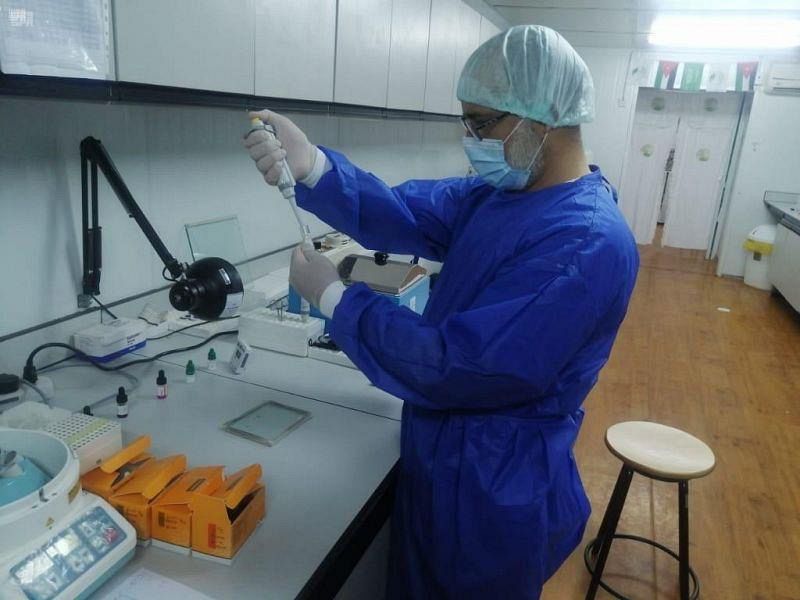
The Moria refugee camp was already operating beyond its capacity and under deteriorating conditions before the fire took hold
It is considered to be Europe’s most crowded site, housing more than 13,000 refugees when designed to take just 3,000
ANKARA: Greece has decided to deport 10,000 refugees to Turkey by the end of next year in the wake of a deadly fire at an overcrowded camp on the island of Lesbos.
Following criticisms after Sunday’s blaze, which left one woman dead and 17 people injured two of them children, the Greek Cabinet held a four-hour emergency meeting when the decision was made.
The Moria refugee camp was already operating beyond its capacity and under deteriorating conditions before the fire took hold. It is considered to be Europe’s most crowded site, housing more than 13,000 refugees when designed to take just 3,000.
Lesbos has become one of the main destinations for refugees in recent years with around 10,000 new arrivals on the island over the last three months alone, according to the Greek government.
Prime Minister Kyriakos Mitsotakis, a conservative politician, is known for his hard-line approach to his country’s migrant crisis.
An agreement signed between Turkey and the EU in 2016, allowed Athens to send back illegal immigrants to its neighbor, Turkey, which has in return received financial assistance from Brussels.
Dimitrios Triantaphyllou, director of the Center for International and European Studies (CIES) at Istanbul’s Kadir Has University, said that as opposed to 2015 and 2016, most of those now trying to reach the Greek islands were not from Syria but Afghanistan and elsewhere.
“As a result, the Greek government is stressing a distinction between refugees, those seeking asylum status, and irregular migrants. The latter category in particular consists of individuals not in need of international protection, who are not Syrian, which Greece intends to speed up efforts to return to Turkey as per the EU-Turkey refugee deal,” he told Arab News.
“Because of the inability to rapidly process all applications, only about 1,800 have been returned to Turkey from Greece since 2016.”
According to Triantaphyllou, although Greece had established structures and processes to deal with the spike in the number of refugees, asylum seekers, and illegal migrants since 2015, its problems had been compounded by the 200 percent rise in arrivals over the last five months.
“Some islands are unable to cope with the increased inflows with tremendous pressure on the ability of the local communities showing empathy,” he added.
For this reason, Triantaphyllou said, Greece was trying to internationalize the issue in order to allow for the development of a more targeted policy on the part of the EU, while Greek authorities were aware that the refugee flows were part of a larger power play between Ankara and the EU.
Athens is also planning to increase naval patrols in the Aegean Sea and build camps specifically for “illegal” immigrants and those refused asylum.
EU Migration Commissioner Dimitris Avramopoulos is expected to visit Greece and Turkey this week, accompanied by German and French interior ministers, to discuss the refugee crisis.
Last month, the German government also called on Greece to deport migrants to Turkey.
Omar Kadkoy, a Syrian-origin researcher on refugee integration at Ankara-based think tank TEPAV, said Turkey must ensure the EU acted upon the promises made under the 2016 agreement.
“The statement clearly says that for every Syrian returned from the Greek islands, another Syrian will be resettled from Turkey to the EU. This should be the protocol governing Greece’s new announcement. It is true that the number of Syrians resettled to the EU exceeds the ones returned from Greece, but the number represents only one-third of what the statement indicates,” he told Arab News.
Kadkoy added that Turkey should also use the new announcement as a wake-up call for the so-called “coalition of the willing,” which had so far failed to establish a feasible responsibility-sharing mechanism among EU member states.
Kenneth Roth, executive director of Human Rights Watch, said one of the reasons for an increased flow of refugees to Greece was their fear of being forced back to Syria.
“Turkey’s government shouldn’t be sending anyone back to Syria. It is not the least bit safe,” he told Arab News. “In the meantime, other European nations should accept more refugees so the responsibility for processing and housing them does not rest solely with Greece, which is just emerging from its economic crisis.”
Roth also noted that the Dublin rules, which state that responsibility for processing and housing asylum seekers rests solely with the country where they land, were wrong and should be abolished.
“Just as European governments have begun to share that responsibility for asylum seekers arriving from Libya to Italy, so they should share the responsibility for those arriving from Turkey to Greece,” he said.









